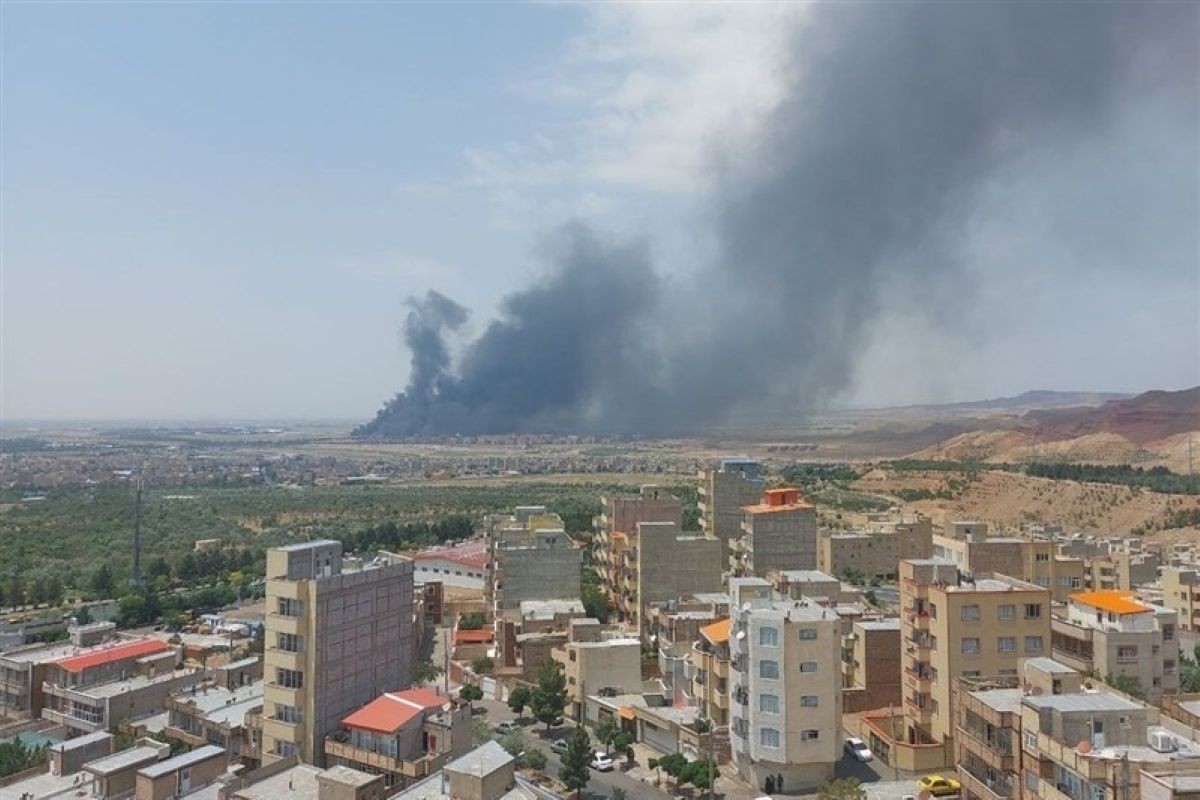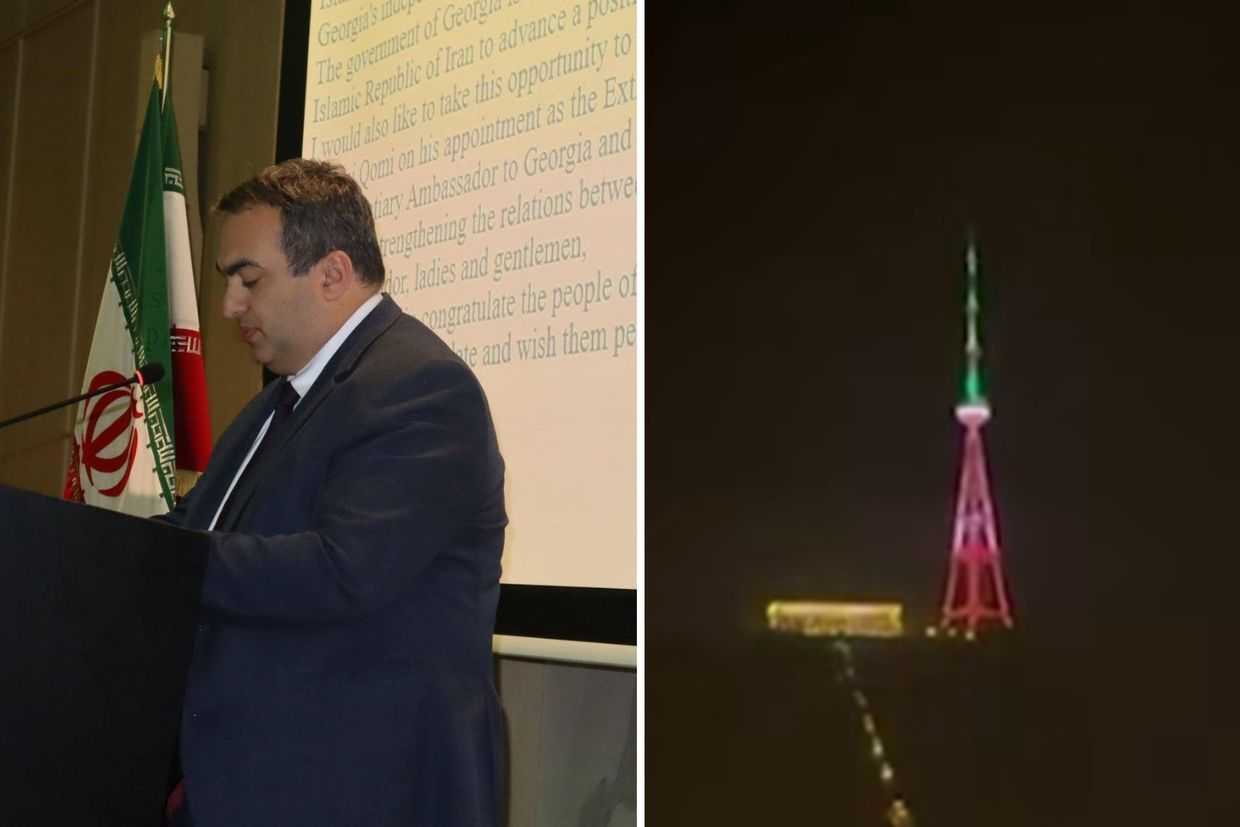
Armenia has condemned Israel’s latest deadly attack on Iran, while Azerbaijan has called for dialogue, as analysts have warned of possible consequences for the region if tensions continue to escalate.
Armenia’s Foreign Ministry as well as senior officials including the Prime Minister condemned Israeli actions on Friday.
Azerbaijan took a more cautious approach, releasing a statement calling for dialogue.
Israel struck targets inside Iran overnight on Thursday and Friday morning, targeting military sites and nuclear facilities and killing dozens of senior military figures and nuclear scientists.
‘The situation in Iran could become a serious challenge for the nearby South Caucasus — especially if it drags on’, Olesya Vartanyan, a regional expert on security and conflicts in the Caucasus wrote on X. ‘It’s not just about humanitarian fallout or disrupted trade routes’, she said, adding it could ‘destabilise a fragile regional balance — from the unfinished Armenia-Azerbaijan peace process to ongoing political tensions in and around Georgia’.
She recalled that Russia’s full scale invasion of Ukraine ‘quickly triggered renewed fighting’ in Nagorno-Karabakh and on the Armenian-Azerbaijani border, and caused political turbulence across the region. ‘A prolonged Iran crisis could do the same’, Vartanyan concluded.
Azerbaijan maintains a close military alliance with Israel, having purchased hundreds of millions of dollars worth of advanced weaponry in recent years. Its relations with neighbouring Iran remain tense, with frequent spikes in hostility between the two countries.
Armenia, by contrast, enjoys warm relations with Iran. While Tehran remained relatively neutral during the Nagorno-Karabakh conflict, Iranian officials have repeatedly warned Azerbaijan against any attempt to seize a land corridor through Armenian territory by force.
Flights from both countries to the region were diverted or cancelled on Friday.
The Armenian National Security Services also said that several Armenia citizens and ethnic Armenians had been aboard diverted flights that had landed in Baku, and that Azerbaijani citizens had also been on flights landing in Yerevan, according to Armenpress. They said the government was working to resolve the issue. Armenians citizens as well as people with Armenian surnames are barred from entering Azerbaijan.
Georgian officials have not commented on the incident.
Armenia condemns ‘unilateral attack’
Armenian Prime Minister Nikol Pashinyan, who is currently attending the the GLOBSEC forum in Czechia, condemned the attack on Friday, saying it put into question ‘the fragile stability we have in the region’
It followed a statement by the foreign ministry earlier that day condemning Israel’s ‘unilateral attack’, and calling it ‘deeply concerning’. They said that the timing ahead of the next round of nuclear negotiations endangered efforts to find a peaceful solution ‘as well as overall regional stability and global peace’.
The ministry called for an ‘immediate cessation of hostilities and adherence to international law’.
Armenian Parliamentary Speaker Alen Simonyan released a statement echoing the sentiment.
Armen Grigoryan, the Secretary of the Security Council, called the attack ‘an encroachment against Iran’s territorial integrity, which will naturally have a negative impact in the region’, according to Armenpress.
He said the attack was a threat not only to Iran or the Middle East, ‘but also a problem for Armenia’.
As for Armenia’s posture amid the escalation between Israel and Iran, Grigoryan insisted Armenia was prepared. ‘We have planning according to [all] scenarios, and we will act accordingly’, Grigoryan said.
Armenia’s deputy Defence Minister said on Friday that the situation on the border with Azerbaijan remained stable.
Azerbaijan ‘deeply concerned’
The response from Azerbaijan was far more muted.
The Foreign Ministry made a statement, saying the situation was ‘deeply concerning’ and urging both sides to ‘resolve their differences through dialogue and diplomatic means, in accordance with the norms and principles of international law’.
The ministry also advised its citizens in Israel to observe security and safety regulations and act in accordance with the security instructions issued by the local authorities. They called on their citizens in Iran to do the same, as well as urging them to stay away from military and nuclear facilities.
On Friday evening Azerbaijani Defence Minister Zakir Hasanov expressed condolences over the death of Mohammad Hosein Bagheri, the Chief of the General Staff of the Armed Forces of Iran, whom he had met several times.
‘I am deeply saddened by the news of the death of Mohammad Hosein Bagheri, whom I knew personally and who was always distinguished by his professionalism and good moments, and who will remain in my memory with warm memories’, he wrote.
State news agency Azertac also dismissed apparent reports that Azerbaijan had assisted Israel.
‘[A]mid the deterioration of Israeli–Iranian relations, false information is being spread in the foreign segment of social networks that an Azerbaijani military aircraft allegedly crossed the border with Iran’, they wrote.
The agency stated that this news was ‘prepared for the purpose of information manipulation, is fake, and does not correspond to reality at all’.








